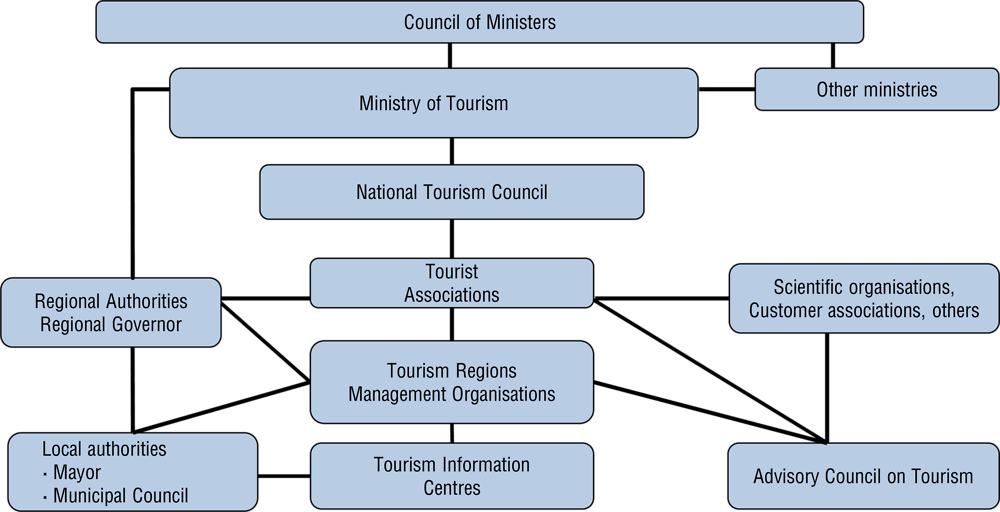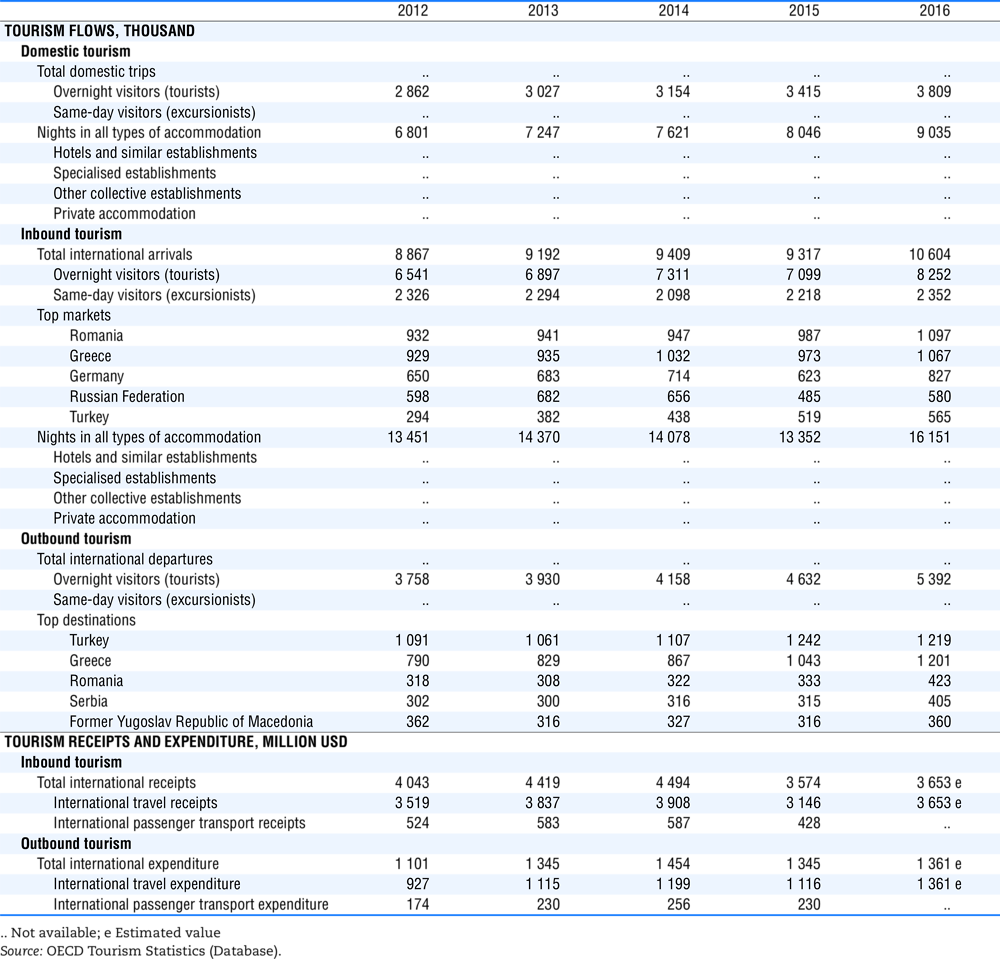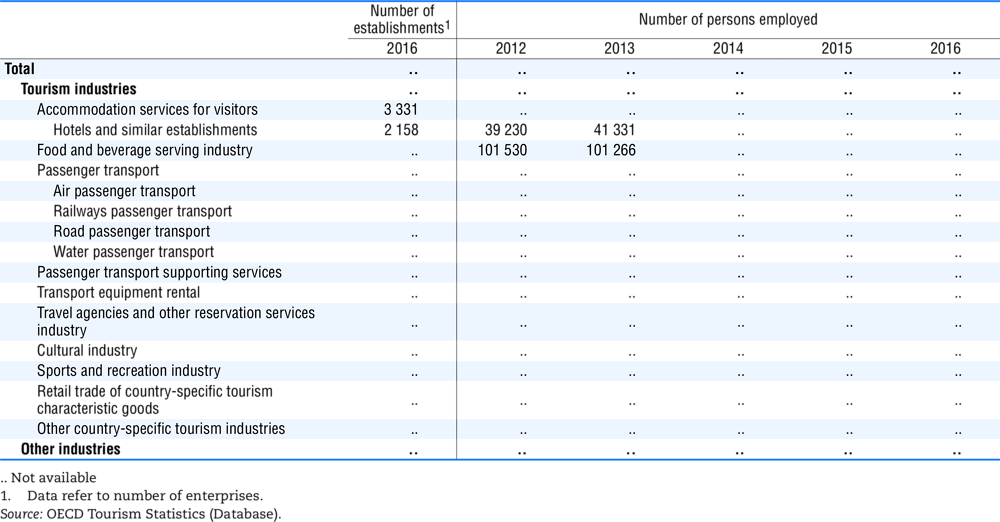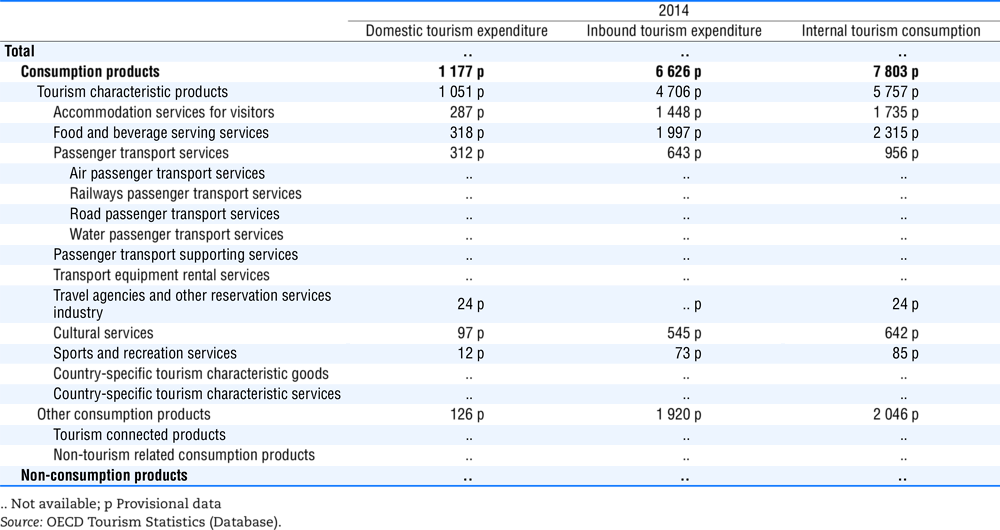Bulgaria
Tourism in the economy
Tourism in Bulgaria is a priority sector as it contributes to sustainable development, protection of nature, prosperity of local communities, and economic growth.
In 2016 tourism directly contributed 3.4% of GDP and generated 3.2% of total employment. The total impact of tourism (including indirect and induced) was estimated to represent 12.8% of GDP and 11.9% of employment (WTTC).
In 2016, Bulgaria received 8.3 million inbound overnight visitors, which represents an annual increase of 16.2% over 2015. There was a growth of 19.9% in the number of holiday visits 5.1 million. Business visits totalled 1.4 million, an increase of 19.4% compared to 2015. International arrivals spent a total of 16.2 million nights in all means of accommodation, up nearly 21% on the previous year. European Union countries continue to be the most important source markets for inbound tourism, accounting for nearly two-thirds of total nights (61%). The top three inbound markets are Romania (1.1 million), Greece (1.1 million) and Germany (827 000), which combined, account for over a third of total nights (36%).
Tourism governance and funding
The Council of Ministers is responsible for formulating national tourism policy in Bulgaria. The Ministry of Tourism (the “Ministry”) implements this policy and coordinates the relevant activities of other ministries and institutions. The Ministry is also responsible for regulation, product development, marketing, research and information, management of external funding for projects and assistance to regional management organisations.
The National Tourism Council is a government consultative body under the authority of the Ministry with representatives from tourism-related ministries and national, regional and local tourism associations, transport operators and consumer bodies.
At subnational level, regional authorities develop and implement tourism strategies and programs in line with the national tourism and regional development strategies. The Tourism Act also makes provision for local authorities to adopt tourism development programmes. The involvement of local communities is ensured by extending the scope of the municipal programs to tourism development. The local mayor is responsible for establishing an Advisory Council on Tourism and a Municipal Expert Commission to categorise tourism facilities and supporting initiatives in line with national tourism policies.
Under the new legislative framework, nine intermediary organisations will be introduced as Destination Management Organisations. These are legal bodies, the members of which include tourism associations, regional and municipal administrations, institutes, museums, scientific bodies and tourism schools. They are responsible for regional tourism product development and the marketing of the nine established tourist regions in Bulgaria.
The Ministry works closely with the private sector and different stakeholders. At national, regional and local level the tourism associations listed in the National Tourism Register participate in relevant tourism organisations and are represented in the National Tourism Council, thus taking an active role in tourism planning and management. They take part in the development of strategies and programmes at national, regional and municipal level, support the process of improving professional skills in the sector, carry out consulting and marketing activities, support the improvement of tourism products and services, and work for the protection of consumer interests.
In 2016 the budget of the Ministry of Tourism was BGN 17 million, of which BGN 10.8 million was allocated for marketing purposes. The Ministry of Tourism administers revenues from the national government and the European Union. Financial support is also provided through the Operational programmes 2014-2020.

Source: OECD, adapted from the Ministry of Tourism, 2018.
Tourism policies and programmes
Bulgaria supports a consistent tourism policy based on partnerships between government and local authorities, NGOs, business and civil society.
The most important challenges for the Bulgarian tourism sector, addressed in the new long-term strategy for sustainable development, are:
-
Overcoming seasonal and spatial concentration,
-
Adapting the national tourism product to climate change,
-
Protecting the environment; supporting the implementation of energy efficiency measures, waste management and protection of biodiversity and the landscape,
-
Developing carrying capacity indicators for vulnerable natural areas and popular tourist sites,
-
Regulating the construction in seaside and mountain resorts.
The strategic goal is to strengthen the competitiveness and efficiency of the tourism sector in Bulgaria through the optimal use of natural and human resources, in line with market requirements and consumer expectations for sustainable tourism development. It involves:
-
Developing integrated and distinctive tourism products for different categories of tourists based on the natural priorities of Bulgaria,
-
Promoting quality services and protecting the rights and safety of consumers,
-
Ensuring effective coordination between institutions and integrating tourism into related sectoral policies,
-
Making Bulgaria a recognised leader in the area of tourism development in the EU and building a positive attitude towards the country,
-
Raising the level of awareness for Bulgaria as a summer and winter tourism destination, capitalising upon the ancient culture, the rich historical and architectural heritage, the mineral resources, the beautiful and preserved nature, and the security and tranquillity it offers visitors,
-
Effective national marketing aimed at positioning and promoting Bulgaria as a year-round tourist destination with sectoral organisations and tour operators working on key markets through targeted messages.
The Ministry is seeking to stimulate the tourism sector by drafting new provisions for tourist activities, by facilitating administrative procedures, by assisting the activities of regional, local and branch tourism organisations. The Ministry also assists SMEs by providing institutional support and funding for Destination Management Organisations outlined in the Tourism Act, including:
-
Activities aimed at capacity building for enterprises to access national and international markets,
-
The establishment of a unified system for tourist information at national level as a platform for networking tourism business, tourism organisations and institutions,
-
Support for the introduction of ICT,
-
Conducting market studies, analyses and forecasts,
-
Developing product, marketing and investment concepts, strategies, plans, etc.,
-
Organising business forums both in Bulgaria and abroad and supporting participation in events and exhibitions at the regional, national and international.
The Ministry of Tourism is currently developing an Integrated Tourist Information System in the form of an electronic database containing information on:
-
Registered tour operators and travel agents,
-
Categorised places of accommodation, catering and entertainment facilities,
-
Destination Management Organisations and Tourist Associations,
-
Tourist information centres,
-
Tour guides, mountain guides and ski instructors,
-
Certified balneotherapy, spa, wellness and thalassotherapy centres,
-
Tourist attractions and festivals,
-
Statistical data compatible with Eurostat and the World Tourism Organization.
The Ministry aims to have an online platform which will gather large volumes of data from all levels and different institutions, to allow the tracking of daily and weekly arrivals, along with a range of indicators and supplementary data at regional level. It is a single gateway for communication between the relevant authorities of central and local authorities, a “one stop shop” for daily and periodic information submitted by the participants in the National Tourism Register. This platform will also ensure innovative and secure data transfer between institutions which will lead to better monitoring and benchmarking, and also to better decision-making process at all levels.



